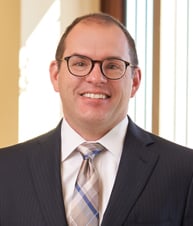Miller Mendel, Inc. v. City of Anna, Texas, Nos. 2022-1753, -1999 (Fed. Cir. (E.D. Tex.) July 18, 2024). Opinion by Cunningham, joined by Moore and Stoll.
Miller Mendel sued City of Anna, Texas for infringement of a patent relating to a software system for managing pre-employment background investigations. City moved for judgment on the pleadings, arguing that asserted claims 1, 5, and 15 are ineligible for patenting under 35 U.S.C. § 101. The district court granted the motion but denied City’s separate motion for attorneys’ fees under 35 U.S.C. § 285. Miller Mendel appealed and City cross-appealed.
On appeal, Miller Mendel argued that the district court erred in its § 101 decision by relying on and citing parts of City’s Rule 12(c) motion that in turn relied on a declaration that was not part of the pleadings. In considering a Rule 12(c) motion, a court “is generally limited to the contents of the pleadings, including attachments thereto.” But the Federal Circuit saw no issue with the district court’s approach. Although the declaration was outside the pleadings, “the district court explained that the declaration was not relevant to its analysis.” The Federal Circuit thus rejected Miller Mendel’s argument. Moreover, the Federal Circuit deemed any error to be harmless because the district court explained that it would have reached the same conclusion both considering and not considering the declaration.
Turning to the merits, the Federal Circuit affirmed the ruling of patent ineligibility under § 101. Applying the two-step Alice/Mayo test, the Federal Circuit ruled at step one that the asserted claims “are directed to the abstract idea of performing a background check.” At step two, the court ruled that the claims “merely recite well-understood, routine, conventional activities, either by requiring conventional computer activities or routine data-gathering steps.” “Indeed, the specification itself describes the invention as ‘automating the majority of the tasks of a common pre-employment background investigation,’ thereby acknowledging that such tasks were routine prior to the date of the invention.”
As for City’s cross-appeal, the Federal Circuit ruled that the district court did not err in limiting its § 101 decision to claims 1, 5, and 15. The district court lacked jurisdiction over other claims because, “in patent cases, the existence of a case or controversy must be evaluated on a claim-by-claim basis.” Here, Miller Mendel had narrowed the asserted claims to just claims 1, 5, and 15.
Lastly, the Federal Circuit ruled that the district court did not abuse its discretion in denying City’s motion for attorneys’ fees under § 285. For example, “under the specific facts of this case, the district court acted within its discretion in finding that ‘Miller Mendel was entitled to believe that the [asserted patent] was valid after it was examined and allowed by the USPTO’ and thereafter exercise its patent rights.”
Koss Corp. v. Bose Corp., Nos. 2022-2090, 2023-1173, -1179, -1180, -1191 (Fed. Cir. (PTAB) July 19, 2024). Opinion by Hughes, joined by Stoll and Cunningham.
Koss filed separate patent infringement suits against Bose and Plantronics, asserting infringement of certain patents. After a variety of dismissals and transfers, the Bose case landed in Massachusetts while the Plantronics case landed in California.
Bose filed IPR petitions as to the three patents asserted against it, and the Massachusetts court stayed the Bose case pending resolution of those IPRs. Meanwhile, in the Plantronics case, the California court dismissed Koss’s First Amended Complaint on the ground that all asserted claims were invalid under 35 U.S.C. §101 for claiming patent-ineligible subject matter. Koss then filed a Second Amended Complaint, and Plantronics filed another motion to dismiss under § 101. Rather than wait for resolution of the motion, Koss stipulated to dismiss the Plantronics case with prejudice.
In the IPRs, the Patent Trial and Appeal Board rendered its Final Written Decisions, and the parties then appealed and cross-appealed the Board’s decisions. While these appeals were pending, the California court issued its decision invalidating the Koss patent claims, prompting Bose to move to dismiss the appeals as moot because the California court’s decision had invalidated the claims.
The Federal Circuit agreed with Bose and dismissed the appeals as moot. The court framed the question as “whether the Plantronics district court’s invalidation of all claims of the [three] patents is final, as Bose contends, or was superseded by Koss’s Second Amended Complaint, as Koss contends.” Koss argued that the district court’s ineligibility ruling became a nullity on the filing of the Second Amended Complaint, but the Federal Circuit disagreed. “The district court’s invalidity order, which was interlocutory when issued, merged with the final judgment dismissing the case with prejudice.” And “Koss neither appealed the invalidation nor had it vacated.” Thus, the patent claims remained invalid, warranting dismissal of the appeals as moot.

